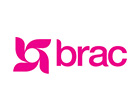Kabir Mollah was pulled out from under the remains of Rana Plaza four days after the collapse. Now every time he goes into a high-rise building, he gets anxious.
Shiuli Khanom was also rescued after four days. "Even though I survived, I felt hopeless," she says. "I couldn’t sleep. I had so many thoughts and worries. I was shaken and afraid and also physically weak."
Regardless of how individuals experience a disaster, the intense fear and helplessness they often feel afterwards can disrupt normal coping methods. "Traumatic experiences can turn a person’s entire belief system upside down," explained Sakila Yesmin, a trauma counsellor from BRAC University's Institute of Educational Development, who is also in charge of the team providing counselling support to the individuals helped and supported by this project. "They can trigger flashbacks, anxiety, depression and post-traumatic stress disorder, which can last for a long time if not properly addressed."
Yesmin believes it is important to ensure that both survivors and their family members never feel alone. "Listening is an integral part of the healing process," she said. "That is why we were there from the beginning." Three days after the tragedy, Yesmin and a team of counsellors were deployed at the hospitals where the injured were admitted. The counsellors listened to the patients talk about their trauma, provided support and encouraged them to confide in their family and friends.
Soon after, those assisted by the programme attended a three-day psychosocial counselling session. "Our aim was to help them accept what happened," emphasised Yesmin. "They cannot change the past, but they can learn to recognise negative feelings and change them into positive ones using specific techniques." Some techniques include breathing exercises to release tension and methods to relieve sleep-related problems, among others. These practical techniques can help survivors reduce stress and improve their state of mind on a daily basis. Two months after the incident, the survivors were kept under observation through regular follow-up visits to keep track of their wellbeing.
"Sometimes when I’m alone, I remember and my head starts hurting. But then I tell myself to do the breathing exercises and I eventually feel better," said Mollah. "The counsellors taught us that if you keep reminding yourself of what you have lost, then you can never move forward." Access to psychosocial counselling and emotional support for both survivors and their families is critical for sustaining their lives. Therefore, additional group and individual counselling sessions are currently being provided.
Over the coming weeks, BRAC and Benetton Group will continue to showcase the experiences of those helped and their stories of recovery.
Anushka Zafar is a senior officer and sub-editor at BRAC Communications.
 About BRAC
About BRAC
BRAC – the world’s largest development organisation and a global leader in creating opportunities for the poor – started as a limited relief operation in 1972, in a remote village of Bangladesh. It has since spread antipoverty solutions to 11 other developing countries in Asia, Africa and the Caribbean. Organising the poor using communities’ own human and material resources, BRAC catalyses lasting change, creating an ecosystem in which the poor have the chance to seize control of their own lives.
BRAC does this with a holistic development approach geared toward inclusion, using tools like healthcare, education, microfinance, disaster management, environment and climate change, legal services, community empowerment and many more. Currently, more than 135 million people are being reached through BRAC staff and BRAC-trained entrepreneurs numbering in the hundreds of thousands. BRAC employs 45,918 regular staff and over 69,434 project staff. Its total expenditure was 546 Million USD in 2013.
For more info about BRAC, please see www.brac.net